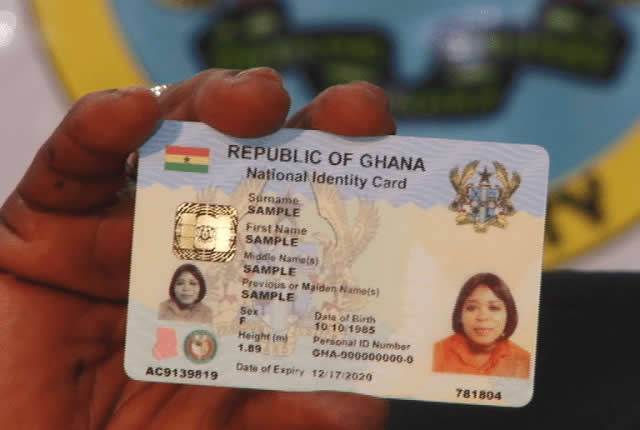NIA to capture 7million under 15 years and 3 million Ghanaians abroad for Ghana Card Over 2.5 million Ghanaians aged 15 and above still without the Ghana Card will be given the opportunity to secure the national identity card from December this year and be captured on the national identification register.
The opportunity is being provided by the National Identification Authority (NIA) through its upcoming continuous registration exercise, which is the final attempt to capture the rest of the first cohort of about 20 million who are above 14 years old. It will enable them to efficiently engage in essential transactions, including banking, tax payment, buying and selling of land, secure national health insurance, drivers’ licence, SIM card, passport, among other services, which they are currently not able to access personally without the Ghana Card.
Data sourced from the NIA showed that 17.56 million Ghanaians, aged 15 and above, out of the 30.8 million population have been registered as of October 31, 2023.
Officials say more than 17.51 million cards have been printed, out of which 16.62 million have been issued, with 895,000 of the printed cards ready to be issued, but that the owners have not made themselves available to receive them. So far, cards of about 49,000 applicants are yet to be printed for a variety of technical reasons, while registration of some 101,000 people have been arrested or blocked pending investigation for attempting to register more than once.
Additionally, 192,277 foreigners have been provided with non-citizen identity cards.
2024 registration
Plans are, however, underway to capture Ghanaians abroad in 2024 by providing registration services to about three million Ghanaian citizens outside the country for a fee between $20 and $50. It would offer services to seven million young Ghanaians under 15 years of age, and 10,000 refugees, asylum seekers and other persons of concern.
Why legal identity
Although not the entire population has been captured at this moment, the feat is a major boost in the quest of the government to create a foundational identification system with the primary purpose of establishing legal identity for its citizens.
It also offers a renewed hope to the government’s commitment to reach the Sustainable Development Goals (SDG), which seek to encourage the provision of legal identity, including birth registration, for all by 2030. A prospective Ghana card applicant, Emmanuel Obeng Asamoah, who interacted with the Daily Graphic at the NIA head office in Accra, stated that he was a Ghanaian citizen permanently resident in Canada, but needed the national ID card for business transactions when on a visit in Ghana.
He explained that the Ghana Card had become an important element in the life of every Ghanaian, including those living abroad, hence the frequent visit to secure the card.
“Key on my visit to Ghana this November is to secure a Ghana Card, and that is why I am at the NIA office today to enquire about the process because I was here last year, (but) I could not get it,” he said.




No comments yet
Be the first to share your thoughts!